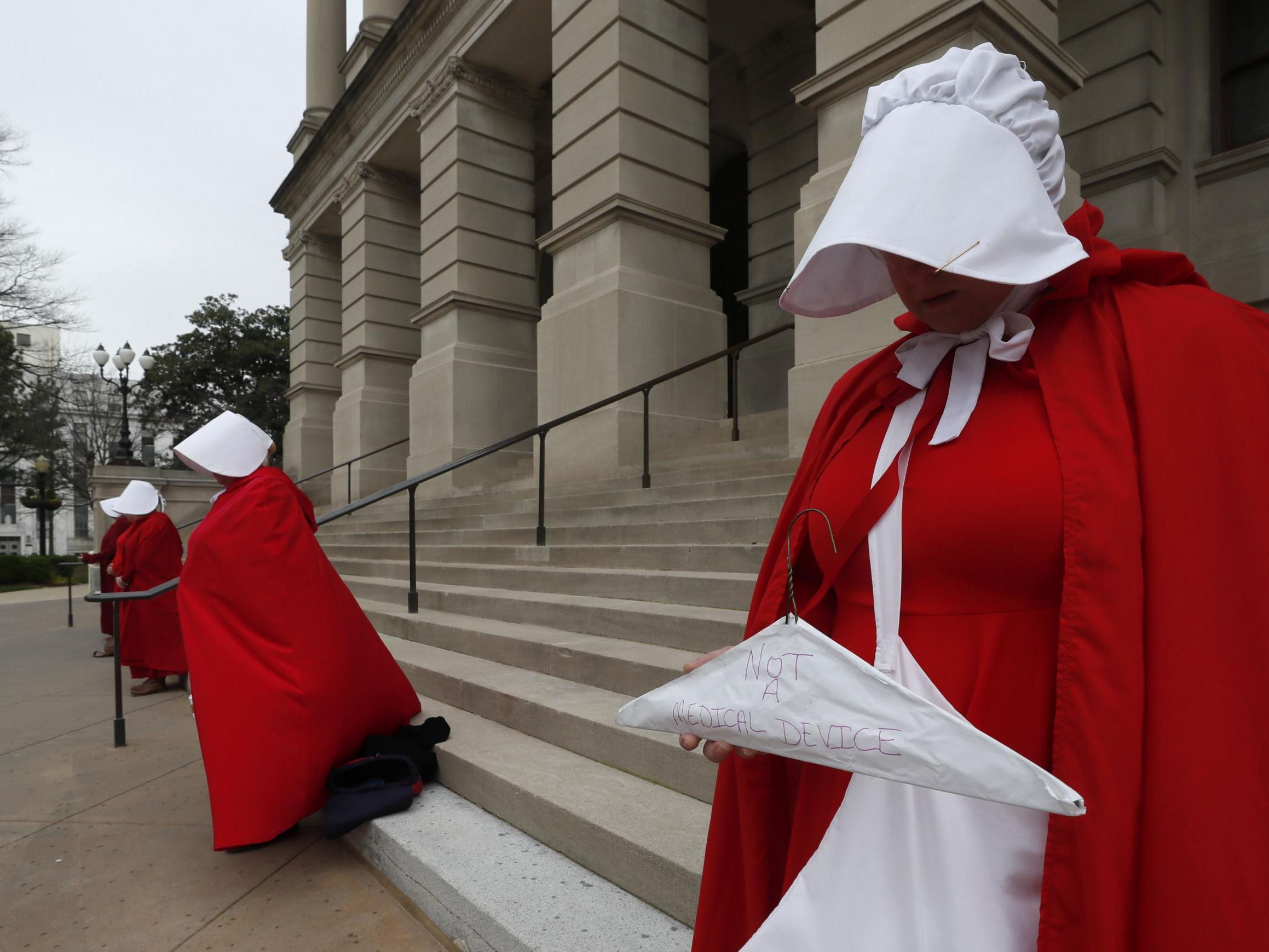Ohio bans abortion before many women realise they are pregnant
It imposes a $20,000 fine on doctors who violate the law

Your support helps us to tell the story
From reproductive rights to climate change to Big Tech, The Independent is on the ground when the story is developing. Whether it's investigating the financials of Elon Musk's pro-Trump PAC or producing our latest documentary, 'The A Word', which shines a light on the American women fighting for reproductive rights, we know how important it is to parse out the facts from the messaging.
At such a critical moment in US history, we need reporters on the ground. Your donation allows us to keep sending journalists to speak to both sides of the story.
The Independent is trusted by Americans across the entire political spectrum. And unlike many other quality news outlets, we choose not to lock Americans out of our reporting and analysis with paywalls. We believe quality journalism should be available to everyone, paid for by those who can afford it.
Your support makes all the difference.A controversial bill which bans abortions before many women even know they are pregnant has been signed into law in Ohio.
The piece of legislation, which is one of the strictest abortion restrictions in the US, does not even allow women to end their pregnancy when they have been raped or in instances of incest.
Republican politicians also added a last minute addition that imposes a $20,000 (£15,300) fine on doctors who violate the law when the bill passed the state House earlier in the week.
Ohio governor Mike DeWine signed the “heartbeat bill” into law on Thursday – making it illegal for women to receive an abortion once a heartbeat has been detected in the foetus.
This can be as early as six weeks into a pregnancy – a point at which many women do not yet know they are pregnant.
Mr DeWine broke with John Kasich, his predecessor who is a fellow Republican who vetoed “heartbeat” bills in 2016 and 2018, citing them as unconstitutional.
State representative Michele Lepore-Hagan, a Democrat, cried as she talked about the harm the legislation could do during Wednesday’s House debate.
“I’m concerned that our kids are going to leave, that we’re going to lose a large amount of young people who don’t want to live in an oppressive atmosphere,” she said.
Kellie Copeland, director of NARAL Pro-Choice Ohio, said lawmakers and the governor have nosedived the state into “a dystopian nightmare where people are forced to continue pregnancies regardless of the harm that may come to them or their family”.
The American Civil Liberties Union of Ohio said it was planning a constitutional challenge to the law on behalf of Preterm Cleveland and three other Ohio abortion clinics before the legislation was signed.
But the bill’s supporters are eager for a legal challenge and have long aspired to provoke a challenge with the potential to overturn Roe v Wade – the landmark Supreme Court decision that legalised abortion nationwide in 1973.
The Supreme Court has previously ruled that states cannot ban abortion before a foetus is viable – about 23 to 25 weeks.
“We literally crafted this legislation to be the arrow in the heart of Roe v Wade,” Janet Folger Porter, who was behind the first version of the Ohio legislation, said in 2016. “It is made to come before the United States Supreme Court.”
Ohio Right to Life president Mike Gonidakis said: “The heartbeat bill is the next incremental step in our strategy to overturn Roe v Wade.”
The first version of the legislation was written by Ms Folger Porter – a far-right religious and anti-abortion activist – back in 2011 and introduced five times.
“Victory!” Faith2Action, the Ohio-based anti-abortion group that originated the heartbeat concept in 2010, said.
Seema Nanda, the chief executive of the Democratic National Committee hit out at the legislation – branding it “the latest example of how the Trump administration’s extremist, anti-women policies have emboldened legislators across the country to attack women’s access to health care.”
Ohio is the seventh state to pass legislation that bans abortion after a heartbeat is detected and legislation is pending in 11 other states. None of the signed bills have successfully become law so far.
But Alarm bells have been raised that Roe v Wade could be overturned or radically undermined with new conservative justices Neil Gorsuch and Brett Kavanaugh.
Abortion opponents in other states have been emboldened to attempt to provoke new legal battles that could spark Supreme Court justices to revisit the key case. But critics argue the Republicans are unnecessarily launching legal battles that will prove to be expensive and futile – with taxpayers potentially footing the bill.
Earlier this week, Texas proposed a law that would criminalise abortions and make it possible for women to receive the death penalty for having an abortion.
However, the bill appeared to have failed by Wednesday night – with the Republican state representative who allowed a hearing on the legislation announcing his opposition to it.
Last week, legislation was introduced in Alabama that would make carrying out an abortion at any stage of the pregnancy punishable by 10 to 99 years in jail – even in cases of rape and incest.
The bill, which has more than 60 co-sponsors in the 105-member Alabama House of Representatives, equates legalised abortion to some of history’s gravest atrocities – likening having your pregnancy terminated to the Nazi campaign of extermination that led to the mass murders of Jews and others during the Holocaust.
Join our commenting forum
Join thought-provoking conversations, follow other Independent readers and see their replies
Comments